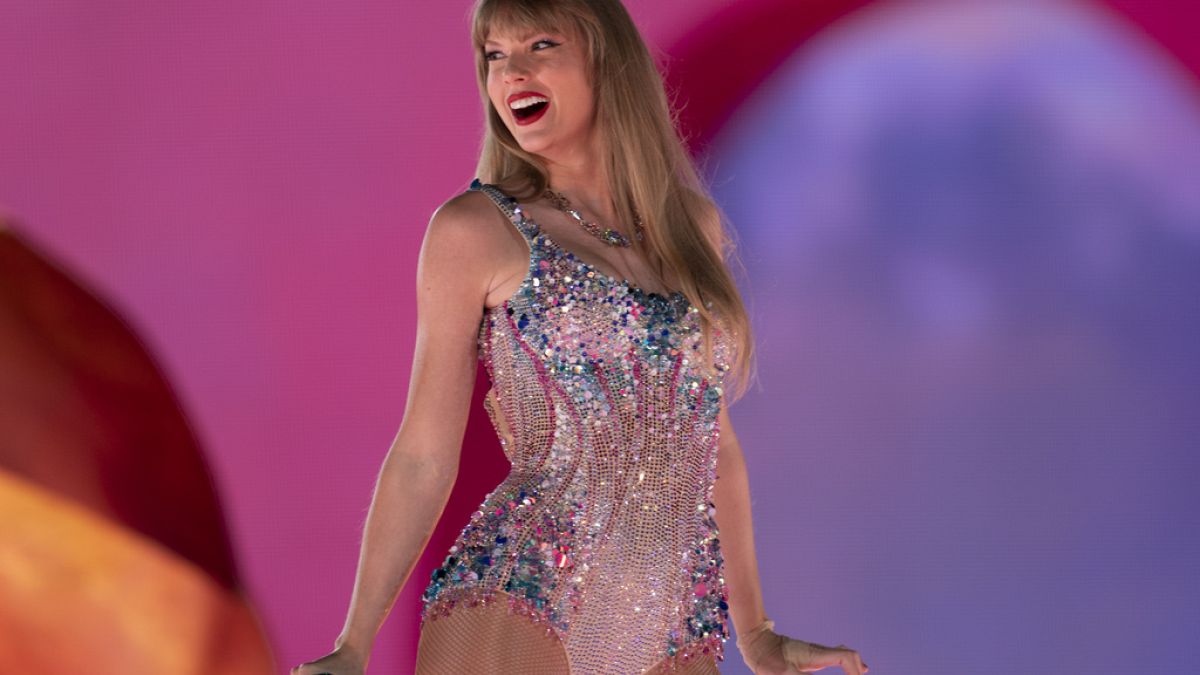Justin Bieber, Selena Gomez, Richard Branson... All these stars seem to have something to say about Ukraine. Turns out darker forces are at work.
“It’s frustrating to see how Ukraine uses our aid. Someone seriously needs to put a stop to this,” reads a quote in French and German next to a photo of star footballer Cristiano Ronaldo.
"I want to ask why the Ukrainian First Lady Olena Zelenska is buying $1 million worth of Cartier jewellery when her husband is asking the US for money for the war,” reads another quote implying it was said by US talk show host Oprah Winfrey, plus actor Dwayne Johnson or The Rock.
Other celebrities allegedly disparaging Ukraine include singers Taylor Swift, Selena Gomez and Justin Bieber.
But although these posts may seem legitimate at first glance, they’re part of a bigger pro-Kremlin disinformation campaign.
The goal? To make it look like even celebrities are on Moscow’s side while criticising Kyiv.
According to Antibot4navalny, a group of internet sleuths tracking Russian influence operations, the campaign has targeted more than 75 celebrities.
In their report, the researchers claim these fake quotes were posted by bots of Doppelganger, "one of the largest and most persistent pro-Kremlin influence campaigns since 2017."
These bots are believed to be linked to Russia’s intelligence agency, the GRU, claims Antibot4navalny.
Researchers told Wired the bot accounts that were identified on social media pushing the doppelganger websites a couple of months ago and the same ones that are now pushing users to websites with direct links to Russia's military spy agency.
The Doppelganger campaign was first revealed in September 2022 by EU DisinfoLab, a nonprofit working to combat disinformation in Europe.
How does the Doppelganger campaign work?
Websites of leading international media are cloned to spread anti-Ukraine narratives.
And because the fake websites look identical to the real news sites, certain social media users fall for them and share the article thinking it's legitimate.
This happened in June 2023 when several leading French and German newspaper websites were cloned.
According to the French authorities, these copycat websites spread mainly anti-Ukraine content.
More recently, the Doppelganger campaign moved onto its new target: the Israel-Hamas war.
A common theme is the suggestion that financial support coming from Western powers has been diverted from Ukraine to Israel. And that Kyiv will soon lose all military and financial support from the West.
Although the Doppelganger campaign has been going on for a while, using fake celebrity quotes is a new tactic that goes to show how persistently these pro-Kremlin accounts continue to try and discredit Ukraine.
Celebrities duped into recording videos used to disparage Zelenskyy
In addition to the fake quotes, pro-Russian propagandists tricked multiple celebrities into recording personalised videos that were then edited and used to try to discredit Ukrainian President Volodymyr Zelenskyy, according to research published by Microsoft.
These celebrities included actor Elijah Wood, Elvis Presley's ex-wife, Priscilla Presley, and actor Dean Norris.
The videos were purchased on Cameo, a service that lets users pay celebrities to record short, customised online videos.
The short video messages, which often feature celebrities pleading with “Vlad” to seek help for substance abuse, were edited to seem like they were referring to the Ukrainian President.
A false narrative that Zelenskyy is a drug addict is a common Russian propaganda theme that has been debunked since the start of the war.
Representatives for Wood and Presley said that the actors simply recorded those videos thinking they were helping a fan with substance abuse and had no intention of criticising Ukraine.
Although Microsoft's researchers have not established the exact source of the videos, they say the doctored videos first appeared on Russian social media platforms, then shared by Russian state media.
